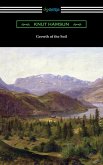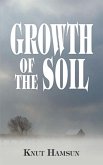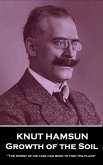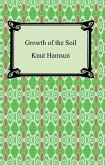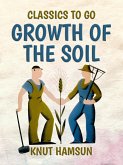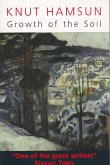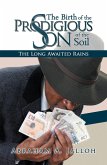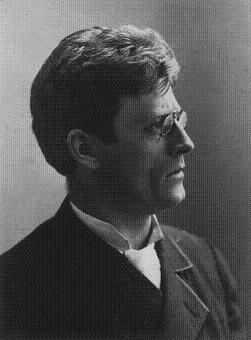Growth of the Soil - Knut Hamsun - Growth of the Soil (Norwegian Markens Grøde), is a novel by Knut Hamsun which won him the Nobel Prize in Literature in 1920. It follows the story of a man who settles and lives in rural Norway. First published in 1917, it has since been translated from Norwegian into languages such as English. The novel was written in the popular style of Norwegian new realism, a movement dominating the early 20th century. The novel exemplified Hamsun's aversion to modernity and inclination towards primitivism and the agrarian lifestyle. The novel employed literary techniques new to the time such as stream of consciousness. Hamsun tended to stress the relationship between his characters and the natural environment. Growth of the Soil portrays the protagonist (Isak) and his family as awed by modernity, yet at times, they come into conflict with it. The novel contains two sections entitled Book One and Book Two. The first book focuses almost solely on the story of Isak and his family and the second book starts off by following the plight of Axel and ends mainly focusing on Isak's family. The novel begins by following the story of Isak, a Norwegian man, who finally settled upon a patch of land which he deemed fit for farming. He began creating earthen sheds in which he housed several goats obtained from the village yonder. Isak asked passing by Lapps, nomadic indigenous people, to tell women that he is in need of help on his farm. Eventually, a "big, brown-eyed girl, full-built and coarse" with a harelip[a] named Inger, arrived at the house and settled in. Inger had her first child which was a son named Eleseus. She then had another son named Sivert. The Lensmand[b] Geissler came by their farm one day informing them that they were on States land and assisting them in purchasing it. They named the farm Sellanraa. Soon after, Geissler was discharged from his position as Lensmand after a sharp reprimand from his superior and was subsequently replaced with Lensmand Heyerdahl. One day while Isak had left the farm to sell a bull in the village, Inger gave birth to a child and had killed it upon seeing that it had a harelip and would undergo the inevitable suffering in life she herself had experienced. One day, Oline, Inger's relative, visited the farm and figured out that Inger had killed a child. The news of the infanticide now spreading. One October day, the Lensmand and a man showed up at their doorstep to investigate and find evidence pertaining to the crime. Oline had agreed to serve at the farm while Inger was serving her eight-year sentence in prison.
Dieser Download kann aus rechtlichen Gründen nur mit Rechnungsadresse in A, B, BG, CY, CZ, D, DK, EW, E, FIN, F, GR, H, IRL, I, LT, L, LR, M, NL, PL, P, R, S, SLO, SK ausgeliefert werden.



